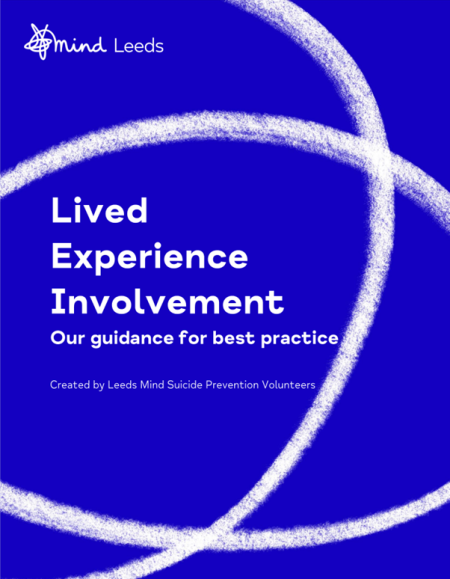Volunteers with experience of the impact of suicide have worked together to create a set of guidelines offering best practice for involving those with lived experience. 
The resource is aimed at all staff working in health and care and covers the many forms that involvement can take, such as inviting people with lived experience to sit on an interview panel, in an advisory group, or in the form of service design.
The work is part of a two-year 'coproduction' project commissioned by West Yorkshire Health and Care Partnership (WY HCP)'s Suicide Prevention Programme and led by Leeds Mind, to bring the voice of lived experience to suicide prevention decision-making and planning.
In creating the guidelines, the volunteers - who have all been affected by suicide, either having been been suicidal themselves, bereaved by suicide or supported someone else facing mental health challenges - have all drawn upon their own lived experience of involvement.
Arlie Haslam, (pictured, right) co-ordinator of the suicide prevention co-production
project at Leeds Mind, said: "We encourage everyone to read it, use it and share it.
"It's suitable for anyone working in health and care, whether you're experienced in lived experience involvement or are just starting out.
"If you're a person with lived experience, we'd also like to hear your thoughts. Have you taken part in any involvement work? What was your experience? What advice would you give to staff working in this way?"
Anyone with lived experience who wants to offer feedback can contact Arlie on arlie.haslam@leedsmind.org.uk.
Read the guidelines here: Lived Experience Involvement: Our guidance for best practice
This is the latest piece of work of the coproduction volunteers and follows on from other projects including the creation of a film in which they speak directly to health and care staff to share their thoughts on good practice within the mental health service.
They are also in the process of creating a 'Book of Cope', to celebrate and share positive coping strategies in the hope of helping others struggling with their mental health.
